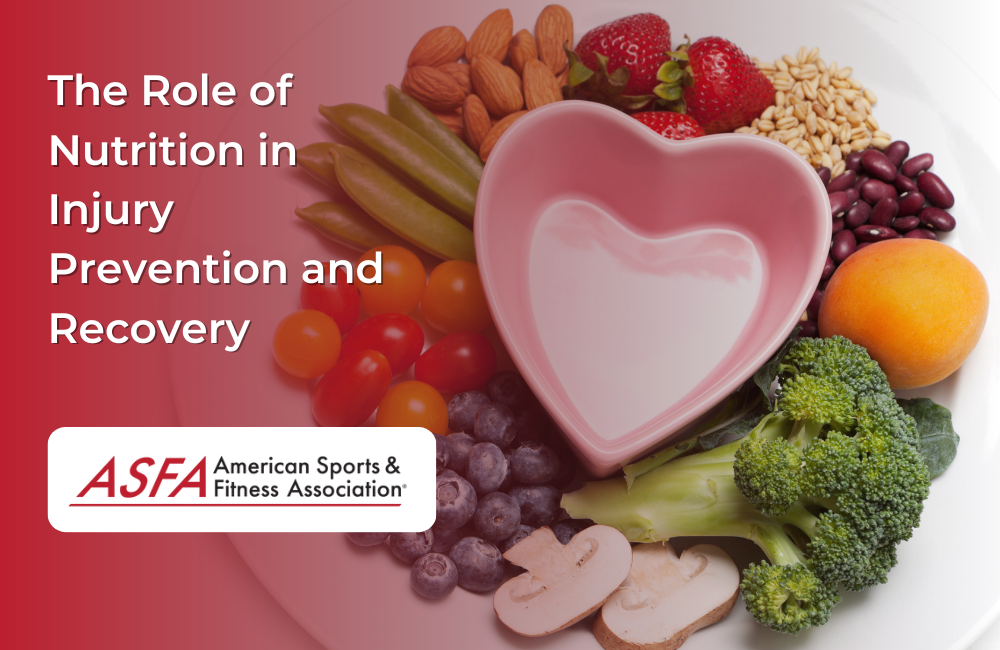Injuries are a part of life, and they can be greatly reduced by eating healthy foods that help repair the body. You don't need to be a professional athlete or have a certain diet to benefit from eating well. A healthy diet can help prevent injuries and speed up recovery time when you do get injured.
Nutrition plays an integral role in the prevention, treatment, and recovery of injuries
In order to prevent and recover from injuries, proper nutrition is necessary. The role of nutrition in injury prevention, treatment, and recovery is an integral one that cannot be overlooked.
Nutrition plays an important role in the prevention of injuries by providing the body with the nutrients it needs to function properly. In addition to providing energy for day-to-day activities and supporting muscle growth/repair (i.e., building blocks for muscles), certain vitamins can also help reduce inflammation caused by overuse or stress on your joints--this helps minimize wear-and-tear on joints so they don't become injured as easily!
In terms of recovery after an injury has occurred: If you've suffered a strain or sprain while exercising but still want to continue working out regularly without aggravating your injury further (or worsening it), try adding foods rich in protein such as eggs, tuna fish, chicken breast, nuts/seeds (such as walnuts), legumes (such as beans) into your diet plan since these foods contain essential amino acids needed by our bodies during times when physical activity levels increase significantly due ebb flow cycles within circadian rhythm cycle patterns which cause fluctuations between energy highs lows lows lows highs highs highs lows!"
After a minor injury, eating a balanced diet can help you recover faster than an unhealthy one
After a minor injury, eating a balanced diet can help you recover faster than an unhealthy one. A healthy diet should include:
- Protein, which helps build muscle and repair tissues. Examples of high-protein foods include eggs, chicken breast or thigh meat (without skin), fish (salmon is especially good for recovery), beans/lentils/peas, and tofu.
- Carbohydrates (such as whole grains), which provide energy for your body during exercise or when recovering from injury. If you do not like whole grains then try brown rice instead of white rice because it has more fiber in it so that might help if you're having trouble digesting certain foods that contain carbohydrates at night time when most people don't want to eat anything heavy due to being tired after work/school etcetera...
A healthy diet can help you prevent injuries by keeping your immune system strong
Your immune system is your body's natural defense against illness and injury. A healthy diet can help you prevent injuries by keeping your immune system strong.
A balanced diet provides all the nutrients that your body needs to function well, including proteins, carbohydrates, fats, vitamins, and minerals (micronutrients). Eating a variety of foods will ensure that all these nutrients are included in the right amounts in your meals--this is known as eating a "balanced diet".
Research shows that people who eat more fruits and vegetables have stronger immune systems than those who eat fewer fruits and vegetables.[1] Eating plenty of fresh fruit will give you lots of vitamin C which helps boost the production of white blood cells which fight infection.[2] Fresh fruit also contains antioxidants such as flavonoids which protect against oxidative damage caused by free radicals.[3]
Healthy eating is important for everyone, not just athletes
You might think that only athletes need to pay attention to nutrition, but the truth is that everyone can benefit from eating a balanced diet. A healthy diet is important for injury recovery and prevention because of it:
- Helps your body fight off infections and illness;
- Boosts mood and energy levels;
- Improves concentration and performance during physical activity (if you're an athlete).
In addition to these benefits, eating well also helps prevent hair loss during crash diets--so don't worry if you're trying out one of those new fad diets!
You can help reduce the risk of injury by eating a balanced diet.
- Eat a balanced diet.
- Avoid junk food and eat more fruits and vegetables.
- If you're on a tight budget, try making your own meals instead of buying pre-packaged ones at the grocery store. You can also save money by shopping in bulk or growing your own vegetables if you have access to land that's suitable for gardening (for example, if you live in an apartment building with a balcony).
- Don't think that healthy eating has to mean boring food! There are plenty of ways to make healthy eating fun -- try incorporating new ingredients into recipes or trying different spices when making foods like curries or stews (curry powder adds an Indian flair; cumin seeds lend Mexican flavors).
Conclusion
If you're looking to improve your health and prevent injuries, it's important to eat a balanced diet. You can help reduce the risk of injury by eating a balanced diet. The best way to ensure that you're getting all the nutrients needed for recovery is by eating foods from all food groups (protein, carbohydrates, and fats) in moderation.
A healthy diet is important for injury recovery and prevention because it: Helps your body fight off infections and illness; Boosts mood and energy levels; Improves concentration and performance during physical activity (if you're an athlete). In addition to these benefits, eating well also helps prevent hair loss during crash diets--so don't worry if you're trying out one of those new fad diets!





